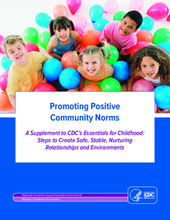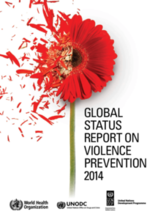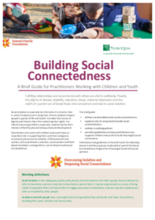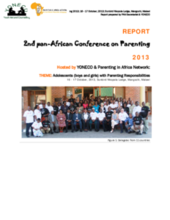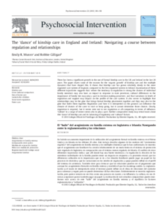Displaying 671 - 680 of 947
This guide serves as a supplement to the United States CDC guide “Essentials for Childhood: Steps to Create Safe, Stable, Nurturing Relationships and Environments.” It provides guidance on creating a context for increasing safe, stable, nurturing relationships and environments for children and families by promoting positive community norms.
This moving short film (7 mins) produced by MenCare examines the circumstance of one man who found himself as the primary caregiver to his children when his female partner moved abroad for work.
This report from the World Health Organization provides an overview of the progress countries have made in implementing the recommendations set out in the World Report on Violence and Health in 2002.
This brief guide: defines social isolation and social connectedness; explains why it is important to build social connectedness; outlines enabling policies; provides guidelines on how practitioners can support children and youth to build meaningful social connections.
This report from SOS Children’s Villages and the University of Bedfordshire provides reviews and assessments of the implementation of the Guidelines for the Alternative Care of Children in 21 countries around the world.
This animated video, produced by Save the Children, tells the story of Suman, a boy whose mother sends him to a care center as she is having difficulty caring for him.
This report summarises the presentations and conclusions from the 2nd Pan-African annual conference on parenting held on the 16-17th October 2013 in Malawi on the theme of "Understanding realities of teenage parenting: a special focus on adolescents (boys and girls) with parenting responsibilities."
This article closes a special edition focused on the state of child protection in 16 countries chosen to represent very different cultural contexts, historical backgrounds, and social welfare systems with special attention to out-of-home care placements, principally family foster care and residential care, though several aspects related to adoption were included as well.
This Handbook aims to provide guidance for Save the Children staff, NGO partners, Community Child Protection Groups and community volunteers in Myanmar in protecting the welfare of children living with extended family members.
There has been a significant growth in the use of formal kinship care in the UK and Ireland in the last 20 years. The paper charts some of the reasons for the 'organic growth' of kinship care and the multiple dynamics that have shaped this.

